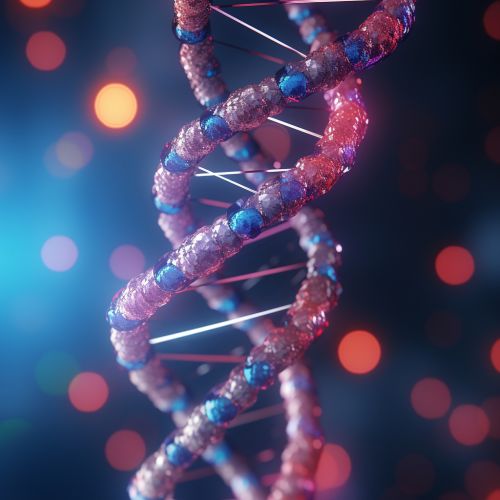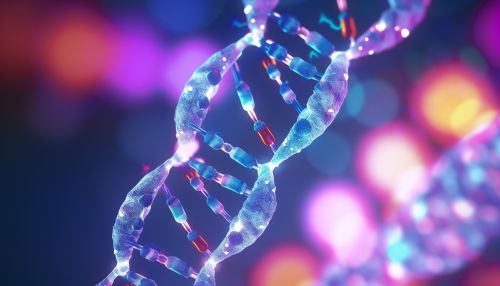Molecular Evolution
Overview
Molecular evolution is a field of biology that studies the mechanisms and consequences of the evolution of biomolecules, primarily proteins and nucleic acids, and how these changes affect the evolution of organisms. The process of molecular evolution can be observed in the structure, function, and composition of these biomolecules as they change over time, reflecting the evolutionary history of life on Earth.


Molecular Evolutionary Mechanisms
Molecular evolution is driven by several mechanisms, including mutation, genetic drift, natural selection, and gene flow. Each of these mechanisms contributes to the diversity and complexity of life by introducing variation into the genetic material of organisms.
Mutation
Mutation is a change in the DNA sequence of an organism's genome. This can occur due to errors during DNA replication, exposure to mutagens, or repair of DNA damage. Mutations can result in changes to the structure and function of proteins, potentially leading to new traits or characteristics.
Genetic Drift
Genetic drift is a random change in allele frequencies in a population over time. This process can lead to the loss or fixation of alleles and can significantly influence the course of molecular evolution, particularly in small populations.
Natural Selection
Natural selection is the process by which certain traits become more or less common in a population due to their impact on the survival and reproduction of individuals. Traits that enhance survival and reproduction are more likely to be passed on to subsequent generations, leading to evolutionary change.
Gene Flow
Gene flow is the transfer of genetic material from one population to another. This can occur through various mechanisms, such as migration or the exchange of pollen between plants. Gene flow can introduce new genetic variation into a population, influencing the course of molecular evolution.
Molecular Clocks
Molecular clocks are a tool used in molecular evolution to estimate the time of divergence between different species or lineages. These clocks are based on the assumption that mutations accumulate at a relatively constant rate over time. By comparing the number of differences in the DNA sequences of two species, scientists can estimate the time since their last common ancestor.
Phylogenetics and Molecular Evolution
Phylogenetics is the study of the evolutionary relationships between organisms. Molecular evolution has greatly contributed to this field by providing molecular data, such as DNA sequences, that can be used to construct phylogenetic trees. These trees represent the evolutionary history of organisms, showing the relationships between different species and the order in which they diverged.
Evolution of Genomes
The evolution of genomes is a major area of focus in molecular evolution. This includes the study of genome size evolution, the evolution of gene duplication, and the evolution of transposable elements. Each of these aspects of genome evolution can have significant impacts on the structure and function of biomolecules, influencing the course of molecular evolution.
Applications of Molecular Evolution
Molecular evolution has many applications in biology and related fields. For example, it is used in phylogeography to study the historical processes that have shaped the current distribution of species. It is also used in molecular epidemiology to track the spread of diseases and in conservation genetics to help protect endangered species.
